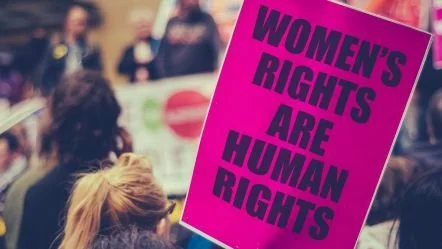At Global Girl Project, we are clear that we are a feminist organisation. However, we know that this term may be used and received differently in different contexts and we want to be aware of this when sharing our position. In order to help us understand this, we spoke with our partners and girls all over the world about feminism and feminist organisations to help us understand how we can best represent ourselves in a way which is relatable and positive for our many stakeholders, and honours the feelings and perspectives of those we serve.
The Challenge and What We Did
Feminism, feminist theory, and feminist action comes in many forms and includes multiple diverse political and national feminist traditions. In the ‘Western’ world the dominant strand of feminism is often seen to be ‘White’, ‘Liberal’ or ‘Capitalist’ feminism, very broadly meaning (amongst other things) feminism which is not intersectional (in that it doesn’t consider the multiple oppressions different women face such as race, class, sexuality, disability etc.), concerns itself primarily with the concerns of middle-class white women, and fundamentally upholds an unequal capitalist system. Historically and today, some feminist movements have excluded women of colour and other minoritised groups, and we were conscious that when describing ourselves as ‘feminists’ we did not want this to alienate the people and organisations with whom we work. In addition, we are conscious that, thanks to a concerted campaign by the patriarchy and its allies, ‘feminism’ has in the past, and still today, be seen as a ‘dirty’ word associated with man-hating radicals.
As an organisation with multiple stakeholders all over the world, and in which being partner-led is central, we wanted to investigate how we can talk about ourselves as a feminist organisation whilst being inclusive, respecting our partners, and not alienating those who might be wary, offended, or scared by the term. To this end we reached out to our facilitators, partnership leads, corporate partners, and girls to explore with them what this meant to different individuals and organisations around the world.
How is ‘feminism’ perceived by our partners?
Broadly, feminism is recognised as being a movement for equality for all regardless of gender. As our partnership lead in Peru, Alma, shared: Simply put, to me feminism is about advocating for equal rights and opportunities across all genders. Some of the other comments from partners and girls were:
“Feminism, for me is equality, equal rights and opportunities.” Lida, our facilitator in Peru
“For me feminism means choice and commitment. The choice of all women to decide on her body and for her future as a woman and the commitment to denounce any form of discrimination or violence against a person because of their gender.” Clyfane, our facilitator in Haiti
“All genders have equal rights and opportunities.” Tin, manager in Cambodia
“Feminism is something that works towards the end of discrimination that is happening based on the genders. It's about giving equal rights and opportunities to all.” Asma, our facilitator in Hyderabad, India
“In my point of view feminist means someone who supports the idea that women should have the same right and opportunities as men and the one who accept the women rights and allow women to get educate and work.” One of our girls
Interestingly, as this was something we might have expected to hear, there was no reporting of feminism being exclusive, man-hating or some of the other negative connotations which may have been associated with the movement.
Most people felt comfortable describing themselves personally as feminists, a selection of some of what was shared on this is below:
“Yes, I would describe myself as a feminist because I believe in analysing who has power, social transformation through collaboration, elevating voices that have been previously oppressed by structures and reflecting on my own practices.” Cyndi, partnership lead with Skateistan
“Actually nowadays, I do agree I am as a feminist because I used to work with the girls [to] provide trainings about women leadership empowerment, to strengthen advocacy to the girls, and the Global Girl Project which empower them in their community.” Suyeng and Sophea, our facilitators in Cambodia
“Yes, I would describe myself as a feminist because I believe every person should have egual rights. '' Alma, partnership lead in Peru
“Yes, I am completely sure that I am a feminist girl because I have seen the situation of women and I never want that the rights of the women be disregarded. I always want women to educate, work and have the same rights and opportunities as men.” One of our girls
What We Are Taking Away
Hearing this, and much more, from our partners all over the world on this subject, has enabled us to think more about how we define, represent and live our feminism as inclusive, de-colonised and intersectional. It’s an ongoing journey, but it’s only by exploring the ideas and listening to the thoughts of those who we work with that we can move towards getting this right.

